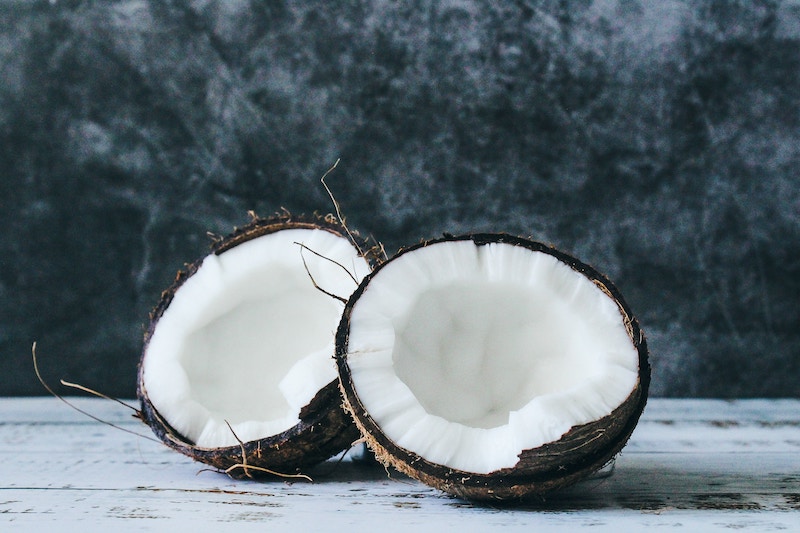There are some incredible synergies to combining Algae Omega DHA and MCT in order to deal with what we see as a global inflammatory health crisis.
We are faced with unprecedented levels of chronic illness, obesity, diabetes, neuro degeneration and cardiovascular disease worldwide.
[1]
Over the past century global health has declined as chronic diseases have increased, particularly in the western world. Coincidentally—or correlatively—during this period the western diet has shifted its appetite from traditional saturated fats and Omega 3 fatty acids towards processed foods rich in oxidised Omega 6 fatty acids and processed carbohydrates.
[2]

Unbalanced & Highly Inflammatory Omega 3 to Omega 6 Ratios
In this blog post, we explore how essential DHA and EPA Omega 3s and saturated fats are for optimising human health. We discuss the beneficial synergies of Algae derived Omega 3 DHA combined with the saturated fat MCT (Medium Chain Triglycerides) as a solution to reverse the current global health trajectory. The super anti-inflammatory pairing of Omega DHA with MCTs allow people to experience the health benefits of a high fat, low carbohydrate diet while addressing the Omega 3 deficiency that is compromising human health, in particular the lack of DHA and EPA Omega 3 fatty acids in our diets today.
[3]
Educated consumers are increasingly taking health into their own hands and exploring new diets as an antidote to the prevalence of chronic inflammation, including the ketogenic and vegan diets.
At VIRUN® we propose that inclusion of an Algae derived Omega DHA and MCT supplement would lead to an overarching reduction in chronic inflammation related diseases worldwide. As exemplified in our liposomal Omega DHA and MCT O3Omega Smoothies formulations.
Processed Foods = Inflammation
As our food supply becomes more globalised, industrialised, and processed, it becomes equally oxidised, inflammatory, and nutrient deficient. Foods that have a long shelf life and are calorically dense have taken precedence over fresh, nutritious foods. Consequently the “diseases of civilisation” have become the norm, rather than the exception.
We now consume up to 20 times more inflammatory Omega 6s from processed foods, as well as significantly more PCBs, pollutants, and heavy metals from our seafood than our twentieth century counterparts.
[4]
The very fabric of our nutritional intake has transformed, and we are suffering en masse because of this. We are consuming too many inflammatory fats and not enough anti-inflammatory Omega 3s, and nourishing saturated fats. Without sufficient healthy saturated fats and Omega 3s human health is and will continue to decline.

From Healthy Fats to Oxidised Fats: Changes in the American Diet since the 1900s.
It is notable that many of the contemporary chronic diseases that Americans suffer from actually stem from changes in diet and lifestyle.
[5]
The three key shifts in the American Diet include:
- The increased consumption of inflammatory, oxidised seed oils from processed foods.
- The declining consumption of the Omega 3s DHA and EPA from Seafood and Algae.
- The excessive consumption of processed sugars and carbohydrates.
“Seed Oils are nothing but Biological Poisons”– Dr Chris Knobbe
Dr Chris Knobbe, Ophthalmologist and co-author of the Ancestral Health Revolution, has documented the relationship between seed oil consumption and hear disease deaths in the USA. Knobbe’s chart below shows a direct correlation between the increase of seed oil consumption (from processed foods) with an increase in deaths from heart disease. In 1900 consumption of seed oils was extremely low, as was processed sugar consumption. Indeed, deaths from heart disease were equally low. Note that saturated fat consumption has no visible correlation with heart disease.
(Consumption in grams per capita per day.)


The human brain is constituted of up to 65% fat and out of this, 50% is Omega 3 DHA
As we over-consume inflammatory processed Omega 6 fats and sugars, we under-consume Omega 3 DHA and EPA, predisposing us to chronic illness. The brain suffers without DHA and EPA. Omega 3s offer tremendous protection from cardiovascular disease, high blood pressure, autoimmune issues, depression, as well as neuro degeneration, such as Alzheimer’s and Dementia. Omega 3 has an anti-aging component, increases lifespan and reduces overall mortality.
DHA plays a pivotal role in the function of synaptic connections in the brain and Omega 3 contains the building blocks for our cell membranes. In fact, without having evolved on a coastal diet of seafood that is rich in DHA, it is likely our IQs would be significantly lower.
“IQs have dropped 9 points since the 1950s due to an Omega 3 deficiency in our diets” – Dr Michael Crawford
[6]
Fears around PCBs and mercury toxicity have caused a drop in our overall seafood and DHA consumption.
Popular fish oil capsules and seafood are potential options for alleviating the Omega 3 DHA and EPA deficiencies. However, fish oil is highly susceptible to oxidation, as well as containing contaminants, parasites, PCBs, heavy metals, and pollutants which cause their own host of health issues.
Why Algae derived Omega 3 DHA?
Algae is the only efficacious plant source of DHA and EPA in the world. [7]
Omega 3s also include ALA and can be found in flax, seeds and nuts, however ALA has a very low conversion rates (1 to 10%) to the anti-inflammatory and brain nourishing DHA. Therefore, flax, seeds and nuts are not an effective source of DHA Omega 3s.
We need more Omega DHA and EPA in our diets but without the PCBs, pollutants, oxidants and heavy metal toxicity. Algae DHA presents the perfect, bioavailable and sustainable solution to increasing our Omega 3 levels.
Algae derived DHA and EPA is significantly less susceptible to oxidation and more sustainably sourced.

The Super Pair Solution: Saturated Fat MCT + Algae Omega 3 DHA
= Reversing the Inflammatory Trajectory
At VIRUN® we suggest the ultimate solution to obtaining essential healthy fats would be through a vegan, un-oxidised Algae derived DHA Omega 3 combined with MCTs from coconuts.
This combination delivers clean burning MCT energy that reduces inflammation, powers the body and brain, while increasing the bioavailability and absorption of Omega 3 DHA, rebalancing the Omega 3-6 ratio that is correlated with so many chronic diseases.
High Fat Wisdom from Our Ancestors
A high healthy fat and low carbohydrate diet, such as the ketogenic diet offers a myriad of benefits. It allows bodies to utilize fat for fuel, promoting a ketone burning metabolism and weight loss. At a baseline, simply by limiting your intake of processed sugars and processed seed oils, you significantly reduce your inflammatory levels and toxins within the body and brain.
‘Good brain function depends on saturated fats’ – Dr Mark Hyman
Primarily, ketones benefit our brains, feed our mitochondria (cellular energy), enhance cell health, and delay cellular degeneration and the resulting symptoms of aging. Further benefits of the ketogenic diet and ketones—which are produced when we consume MCTs include: a stabilisation of blood sugar levels, reduced inflammation, improved neurological function and physical performance. Ketones consolidate the anti-inflammatory benefits of Omega 3s while reversing the inflammatory damage of processed sugars.
However, a ketogenic diet requires discipline and due to the counterintuitive nature of our food consumption, it can be a difficult diet adhere to. MCTs are quickly converted into ketones in the liver, allowing you to experience the benefits of ketogenic diet by producing more ketones yet without being on strict ketogenic diet. Because of this, MCTs have been an increasingly popular addition to the ketogenic and health optimisation movement.

Why MCTs from Coconuts?
MCTs are not as susceptible to oxidation as PUFAs which means that it produces fewer cancer-causing free radicals. MCT is proven to increase energy expenditure and fat oxidation while preserving lean muscle tissue.
MCTs play an important role in powering, growing, and protecting the brain—as do the Omega 3s DHA and EPA. It is curious to note that the lack of Omega 3s and MCTs in our modern diet have had negative consequences on our inflammation levels and that is exactly why we believe these two missing ingredients can perform as the anti-inflammatory super pair.
Synergistic Benefits
It is quite remarkable how Omega 3 and MCT can really transform our health. We can see that MCT and Omega 3 support similar health pathways in reducing overall inflammation, supplying essential nutrients to the brain and in enhancing lifespan and longevity by combating and preventing chronic disease.
MCTs and Omega 3s work synergistically in alleviating modern day inflammation and illness while simulating the benefits of an Omega 3 rich ketogenic diet.
Sustainably Vegan
Algae sourced Omega 3 DHA is sustainable, vegan and has a low carbon footprint in comparison with eating fish and fish oil capsules. Combined with MCT, they deliver a vegan, non-oxidised and sustainable solution for global health decline.

The Solution to Reducing Inflammation and Restoring Health
What is needed is a bioavailable DHA MCT supplement that reduces inflammation while delivering healthy fats. VIRUN are currently formulating the O3Omega Smoothies Algae DHA MCT supplement range to address and negate this current inflammatory health crisis.
Furthermore, our O3Omega Smoothies liposomal supplements contain Algae DHA combined with MCT from coconuts to deliver health benefits while tasting delicious. Rebalancing Omega 3-6 ratios, reducing inflammation, and feeding your brain becomes enjoyable and effortless.
Contact us to find out more about anti-inflammatory and synergistic supplement formulations and find out more about creating your own supplement line with us.
References
[1] Ansah JP, Chiu CT. Projecting the chronic disease burden among the adult population in the United States using a multi-state population model. Front Public Health. 2023 Jan 13;10:1082183. doi: 10.3389/fpubh.2022.1082183. PMID: 36711415; PMCID: PMC9881650. https://www.ncbi.nlm.nih.gov/pmc/articles/PMC9881650/
[2] Simopoulos AP. An Increase in the Omega-6/Omega-3 Fatty Acid Ratio Increases the Risk for Obesity. Nutrients. 2016 Mar 2;8(3):128. doi: 10.3390/nu8030128. PMID: 26950145; PMCID: PMC4808858. https://www.ncbi.nlm.nih.gov/pmc/articles/PMC4808858/
[3] Borsini, A., Nicolaou, A., Camacho-Muñoz, D. et al. Omega-3 polyunsaturated fatty acids protect against inflammation through production of LOX and CYP450 lipid mediators: relevance for major depression and for human hippocampal neurogenesis. Mol Psychiatry26, 6773–6788 (2021). https://doi.org/10.1038/s41380-021-01160-8https://www.nature.com/articles/s41380-021-01160-8
[4]Ancestral Diet Revolution: How Vegetables Oils and Processed Foods Destroy Our Health—and How to Recover! Dr Chris Knobbe & Dr Suzanne Alexander, 2023 p.86
[5] Blasbalg TL, Hibbeln JR, Ramsden CE, Majchrzak SF, Rawlings RR. Changes in consumption of omega-3 and omega-6 fatty acids in the United States during the 20th century. Am J Clin Nutr. 2011 May;93(5):950-62. doi: 10.3945/ajcn.110.006643. Epub 2011 Mar 2. PMID: 21367944; PMCID: PMC3076650. https://pubmed.ncbi.nlm.nih.gov/21367944/
[6] Crawford MA, Wang Y, Marsh DE, Johnson MR, Ogundipe E, Ibrahim A, Rajkumar H, Kowsalya S, Kothapalli KSD, Brenna JT. Neurodevelopment, nutrition and genetics. A contemporary retrospective on neurocognitive health on the occasion of the 100th anniversary of the National Institute of Nutrition, Hyderabad, India. Prostaglandins Leukot Essent Fatty Acids. 2022 May;180:102427. doi: 10.1016/j.plefa.2022.102427. Epub 2022 Apr 6. PMID: 35413515; PMCID: PMC9152880. https://www.ncbi.nlm.nih.gov/pmc/articles/PMC9152880/
[7] Doughman SD, Krupanidhi S, Sanjeevi CB. Omega-3 fatty acids for nutrition and medicine: considering microalgae oil as a vegetarian source of EPA and DHA. Curr Diabetes Rev. 2007 Aug;3(3):198-203. doi: 10.2174/157339907781368968. PMID: 18220672.

